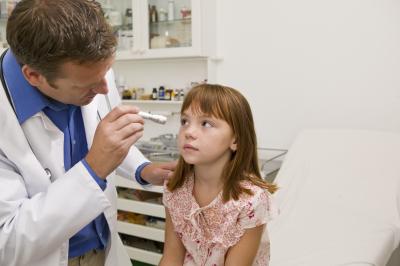A seizure is a scary experience for parents, especially if your child has no history of medical problems. Short seizures typically don’t cause long-term damage, but longer seizures can be more dangerous. A basic understanding of seizures helps you identify and respond to the medical condition, but your child’s physician can give you more specialized advice and care, based on your child’s specific medical history.
Causes
Abnormalities in the electrical impulses in the brain lead to seizures in many cases. The abnormalities could be something your child is born with or caused later from a brain or nervous system injury. Epilepsy is a disorder associated with seizures. A child might also have a seizure after holding his breath when injured or crying.
Symptoms
Convulsions often come to mind with seizures. More subtle symptoms also accompany seizures. This might include uncontrollable twitching, falling to the floor, flailing, being unresponsive, staring or losing consciousness. The symptoms anywhere from a few seconds to several minutes. A seizure lasting longer than five minutes becomes dangerous because of the potential for long-term damage.
Handling Seizures
A safe environment is key when your child has a seizure. Holding your child or trying to stop the seizure won’t work and could cause injury to your child. Remove anything near her that could cause injury. A side position helps prevent choking on saliva or vomit. Never put anything in your child’s mouth during a seizure. A severe seizure might require you to call 911, particularly if your child has breathing difficulties, a head injury, illness, heart condition or if the seizure lasts longer than five minutes.
Medical Interventions
A visit to the doctor after a seizure, especially if it is the first one, is necessary to evaluate your child. The doctor will run tests on your child, which will probably include an EEG. An MRI or CT scan might also be used to assess your child’s seizure activity. If seizures continue, medications to control them might be prescribed.
Febrile Seizures
Febrile seizures are common at the toddler age. These seizures are caused by a high fever and are generally considered harmless. The symptoms of a febrile seizure are similar to any other seizure. Contact your child’s doctor if you suspect she experienced a febrile seizure.





